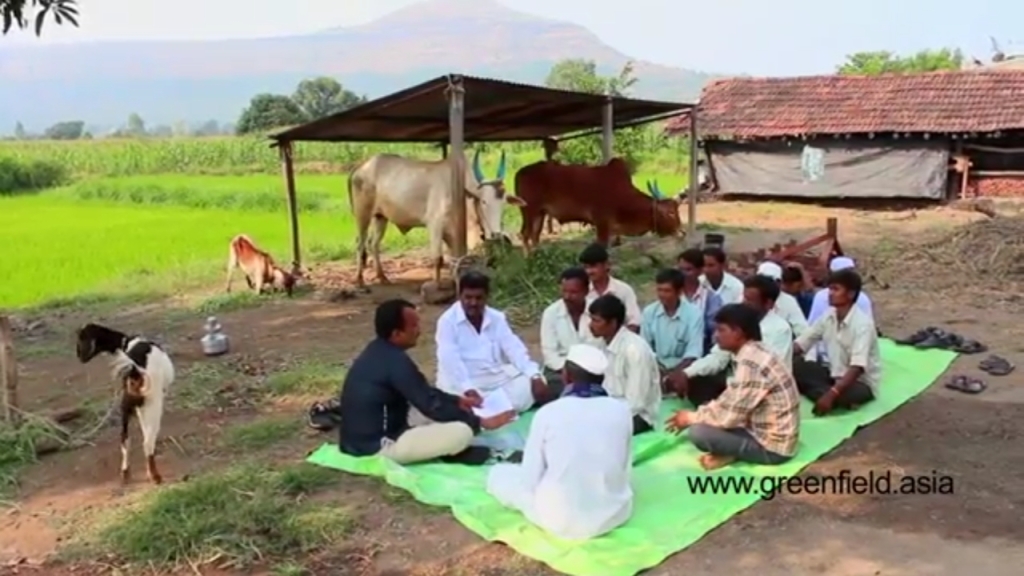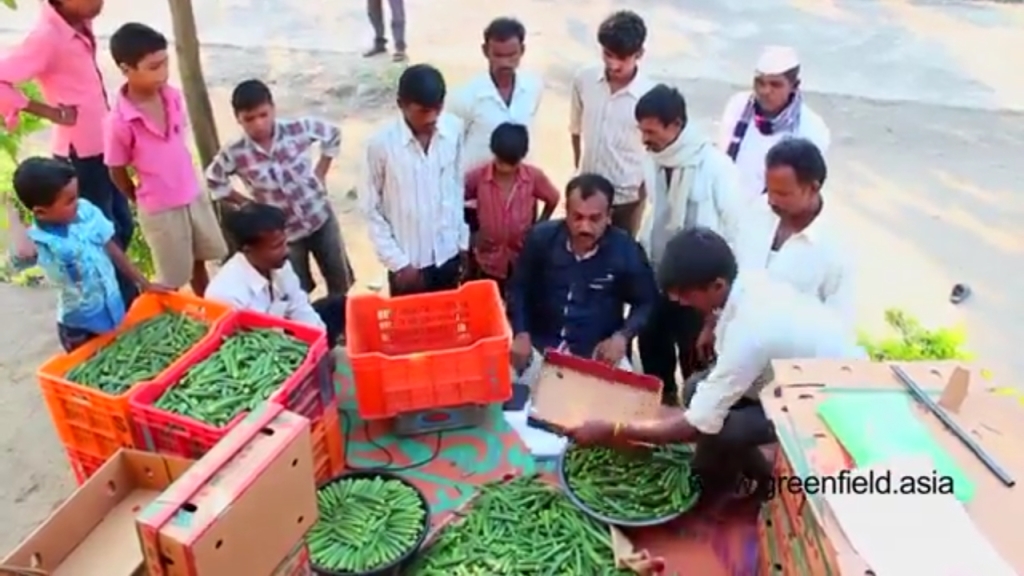Amol Gorhe: A story of passion, resilience, and vision

Running around all the time and getting home at 9.30 PM is the reality of almost every small business owner. Amol Gorhe, the founder of Greenfield Agro, is no exception. Mr Gorhe started as a third-party auditor for the export of agricultural products. After over ten years of experience in the industry, he started a business.
2000-2011: Beginnings of an idea

As a third-party auditor in the export business, he saw that most high-quality products were being exported. But in India, lower-quality goods were often sold at similar prices. Greenfield Agro initially started as a way to bring higher quality products to Indians.
2012-2013: Trying and failing
When Greenfield Agro started in 2012, it did not last more than a year. There were too few customers in Nasik, and there was no one spreading the word about his business. After this attempt, Mr Gorhe turned to contract farming in 2013. In contract farming, the farmer agrees to supply a certain quantity of crop to the businessman at an agreed-upon cost. Mr Gorhe planned to export the products he got from farmers. However, the chillies he tried to export were not of good enough quality. He decided not to run away from the problem (unlike many big companies) and had to bear a staggering loss of over Rs. 50 lakhs. After covering this loss from his own funds, Mr Gorhe had nothing left. He had to start over.
2016-2018: Learning the market
When working as an auditor, he realised that farmers lack assured markets. There is no guarantee that their products will sell. He saw the same problem in 2016 when the BJP government gave him a chance to set up farmer’s markets in Mumbai and surrounding areas.

The issue with the market was the large quantity of surplus going to waste. Mr Gorhe noticed that many farmers could not accurately predict demand. According to him, this is because farmers do not have enough knowledge of the market. They do not know what vegetables consumers will buy, so they do not grow produce accordingly. When they try to sell their produce, they can only hope that people are willing to buy it.
Farmers grow vegetables and then look for consumer demand, hoping that it exists, rather than growing what people want in the first place. It is based on luck, not on actual information about the market. This results in them not having an assured market for their products.
While working with farmers, he also learnt that they do not have fixed rates for their products.
These problems contribute to making farming an unprofitable business in India. Farmers don’t even want their sons to farm. Mr Gorhe, whose father is a farmer, is himself an example of this.
Farmers were not the only ones whom the system did not serve. Many local vendors sell vegetables that are grown in unhealthy environments, like close to railway tracks. While these vegetables may look fresh on the outside, internally, they are not good. Often, water contaminated by heavy metals and sewage is used on these plants. The average consumer, however, is not a food auditor like Mr Gorhe was. They cannot tell the quality of the vegetables they buy.
2019: A new beginning
Both farmers and consumers needed a solution—farmers needed fixed rates and an assured market, and customers required good quality vegetables. His e-commerce platform was to be this solution. Customers pre-ordering allows vegetables to be grown according to what is in demand to prevent loss due to surpluses and ensures set prices.

Farmers also face uncertainty because the weather is unpredictable. To help resolve this issue, Mr Gorhe has provided them with a weather app to give them hourly weather forecasts with data about the local humidity, temperature, rainfall predictions, etc. Forecasting stations have been set up in areas close to or on farms. Farmers can decide what to grow in the next few days based on this information.
When he approached farmers in Nasik to work with him, they readily agreed because of his 20 years of experience in the industry.
2020-2021: Success!
Mr Gorhe needed a way to spread the word about his business to prevent what happened in 2012 from happening again. Advertising is one obvious way to do this. However, he does not believe that advertising is the right way to grow his business. He hopes that when consumers buy their products, they will be convinced of their quality and spread the word about his business. He believes that though this is a slow process, new customers will be more convinced of their quality, and hence be more loyal.
Unlike many other small businesses, the COVID-19 pandemic gave him the chance he hoped for. People needed food delivered to their homes, and an e-commerce platform perfectly matched their requirements. Their app was ready for launch just when the first lockdown was announced, and downloads increased alongside Covid cases.
Despite the risk of infection, Greenfield Agro continued because this was when they could make a difference. As a business, it gave them pride that they were could serve society at such a critical time. The pandemic helped spread the word about their business.

They now have over fifty customers in Mumbai, two shops in Nasik, and have mobile vehicles going to big housing complexes in Nasik, who have permitted them to set up stalls. They hope that in a year, they have at least 10,000 consumers. This will help at least 1000 farmers have a stable livelihood.

Greenfield Agro also hopes to create employment. They have trained and employed students, elderly people, women, and even housewives to grade and pack vegetables.
Future hopes
There is are many vacancies in the Indian farming industry, Mr Gorhe says. He hopes the large number of people going back to their villages will realise that there is the opportunity and start farming. Greenfield Agro cannot change things for all consumers and farmers. They hope that other people will take this model and replicate it in their area to make agriculture a profitable business again.
People in cities are losing their knowledge of farming activities and their connection with the farming community. Mr Gorhe wants to rebuild this with his agritourism program. If you ask a city child where their milk comes from, they may most likely reply “भैया दूध देता है”. “We want people from cities to come any time and spend the day with a farming family”, he says.
Greenfield Agro’s larger goal is to rebuild the connection between farmers and urban dwellers – “between India and Bharat”.
Writer’s thoughts
This was the first farmer-to-consumer project I had seen, so I became curious about how and why they started.
Through their story I have learnt yet again to stay resilient and set realistic expectations. If he had given up when things did not work in 2013, Greenfield Agro would not be where it is today. As Mr Gorhe says, “Everyone has their limitations, unrealistic expectations only lead to disappointment. […] If your intention is clear and good, people support you.”
Acknowledgements
Amol Gorhe, Natasha Irani for comments.
Sources
https://bolbhidu.com/news-paper-vendors-deliver-veggies-about-greenfild/ https://www.youtube.com/watch?v=e-B_ukU3IHE https://www.youtube.com/watch?v=oZVcirOiPmg https://www.youtube.com/watch?v=9DAuIVuJ9SY
Greenfield Agro’s YouTube channel: https://www.youtube.com/channel/UCtWsIN_DIr8ff0rGYp1gM-A Contact Amol Gorhe: +91 98233 77980